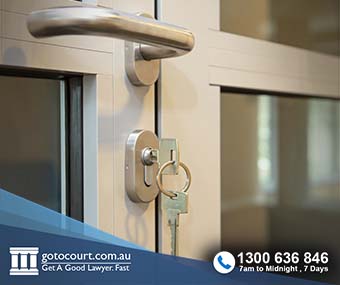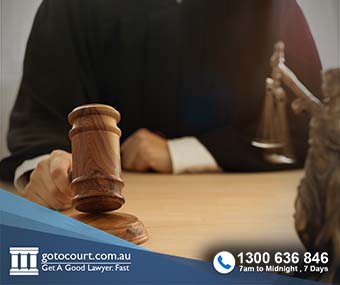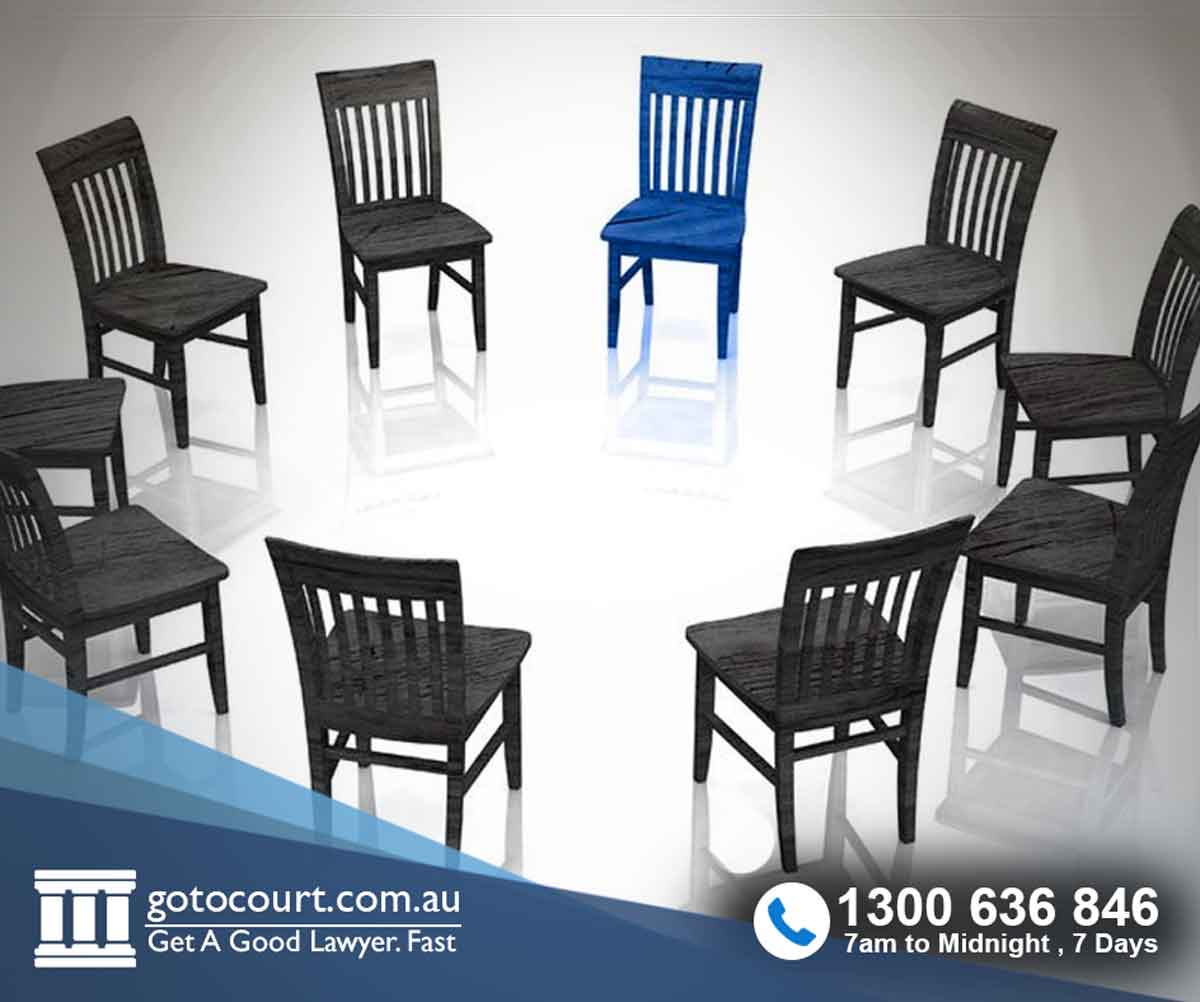Filing an Appeal in a Criminal Matter (Vic)
When a person is found guilty and sentenced in the Magistrates Court, they may wish to consider filing an appeal against either the verdict or the sentence. This article explores the processes and accompanying restrictions involved in pursuing such an appeal.
Appeals to the County Court
If a person is found guilty of a criminal offence in the Magistrates’ Court of Victoria and is not satisfied with either:
- the finding of guilt (the conviction);
- the sentence imposed,
they can appeal to the County Court of Victoria (Criminal Procedure Act, Section 254). The prosecution can also appeal against the sentence imposed by a Magistrate in the County Court (Section 255(4)).
Initiating an appeal
Such an appeal can be lodged by filing an appeal with the Registrar of the Magistrates’ Court. The person filing an appeal must sign a statement acknowledging that they understand that the sentence imposed by the County Court upon hearing of the appeal may be more severe than that originally imposed by the Magistrates’ Court and sign an undertaking to appear at a date to be fixed in the County Court. If a person was sentenced to imprisonment, they will have to separately apply for bail.
Time frames for filing an appeal
The Notice of Appeal must be filed within 28 days of the decision and served on the prosecution within 7 days of filing. One can apply to appeal outside the 28 days, however such an application will by default be deemed to be an application for leave to appeal. The County Court must, upon filing an appeal out of time, first determine whether leave to hear the appeal is heard, before hearing the appeal. Such leave may be granted where:
- the court is satisfied that the reasons for the delay in filing were due to exceptional circumstances, and
- the court is also satisfied that the opposing party’s case would not be materially prejudiced because of the delay in filling the appeal.
When filing an appeal out of time, one needs to put material before the County Court demonstrating special and substantial reasons for requiring leave to appeal out of time. The more time has passed since the limitation period elapsed, the more exceptional the circumstances must be.
Additionally, where one has filed significantly past the imposed time limits, the court is likely to only allow leave to appeal, if it can be satisfied that the appeal has some prospects of being successful.
The principles applicable to whether leave should be granted are also impacted by whether or not one is appealing only the sentence or the conviction itself as well. Where one seeks to appeal a conviction, a significant consideration is whether a fair trial can be held given the extensive delay. This particularly relates to the availability of witnesses and exhibits and the impact of re-opening such proceedings on any victim in the original proceeding.
Ultimately, if leave to appeal is not granted, the court must strike out the appeal. If this occurs and the accused had been sentenced to a term of imprisonment, a warrant to imprison the accused may be issued. Any other sentence of the Magistrates’ Court may be enforced as if the appeal had not been commenced upon the appeal being struck out.
Effect of filing an appeal
When a Notice of Appeal is filed in a matter where the sentence imposed does not require the commencement of a term of imprisonment, the appeal causes a stay of the sentence, but not the conviction. If the sentences included a term of imprisonment, that term is only stayed if bail is granted.
Notably, filing an appeal does not automatically stay any order of disqualification of one’s driver’s licence. However, the Magistrates’ Court has discretion to specifically and separately order the stay of such a disqualification period until the appeal has been resolved (Road Safety Act, Section 29(2)).
The appeal hearing
A County Court appeal is conducted as a rehearing of the original proceeding. Notably, the appellant is not bound by the plea they entered in the Magistrates’ Court (Criminal Procedure Act, Section 256(1)). For example, if one previously entered a plea of guilty in the Magistrates’ Court, one can upon appeal enter a plea of not guilty, though the prosecution would be likely to rely on the entering of a plea of guilty as evidence of guilt.
At the appeal hearing the Prosecution is required to present its case again in its totality and again carry the burden of proof. The Prosecution is not considered to derive any benefit from its success in the Magistrates’ Court jurisdiction. Similarly, neither party is limited to presenting evidence that was presented in the Magistrates’ Court, and either party may change the formulation of its case. This is particularly relevant where legislation has recently changed, as the appeal must be determined on the law as it stands at the date of the appeal.
As early as possible in the appeal hearing, the appellant must again be warned that a sentence more severe than that was imposed by the Magistrates’ Court may be imposed as part of the decision of the appeal. However, notably this subsequent obligation on the court only arises where the court considers that an increased sentence is a “practical possibility” not just a theoretical possibility which exists in all cases. This obligation is triggered as soon as the court becomes aware that there is a real possibility of imposing a particular sentence which, objectively, is more severe than the original sentence imposed. This often occurs upon the court’s hearing of the prosecution summary. And even if the court ultimately decides not to impose a sentence more severe than the original sentence, there is an obligation on the court to warn as soon as possible upon realisation that a more severe sentence may be considered. If the court imposes a more severe sentence, that decision will be invalid if the court has failed to give the statutory warning.
Abandonment of appeal
At any stage of an appeal, the appellant can decide to abandon the appeal by filing the relevant notice with the Registrar of the County Court. When an appeal is abandoned the County Court must make an order striking out the appeal. Upon striking out an appeal, the Magistrates’ Court sentence is reinstated and enforced as if an appeal had not been made.
Cost Orders
If the court is satisfied, upon dismissing or striking out an appeal, that the appeal was brought vexatiously or frivolously or was an abuse of process, an order that the appellant pay all or a portion of the respondent’s costs of the appeal may be made. A costs order may also be made where any undertaking as part of the appeal, for example the undertaking to appear at court, is breached or the appeal is abandoned.
Appeals to the Supreme Court
The procedures and time frames and general principles which have been detailed above, also apply to Magistrates’ Court decisions being appealed to the Supreme Court. However, appeals to the Supreme Court can only be made on a “question of law”. It is important to carefully consider whether an appeal should be made to the Supreme Court, because upon filing such an appeal, any right to appeal to the County Court is “finally and conclusively” abandoned (Criminal Procedure Act, Section 237).
An appeal to the Supreme Court does not automatically stay any order made by the Magistrates’ Court. A stay must be specifically ordered by the Supreme Court.
The appeal hearing
The Supreme Court has slightly different powers to the Country Court when determining an appeal. If satisfied that the Magistrate made a mistake, the judge makes an order remitting the case for rehearing in the Magistrates’ Court, with or without a direction in law. If not satisfied that the Magistrate made a mistake, the Supreme Court may order that the Magistrates’ Court order be enforced as if it were an order of the Supreme Court.
Costs orders
The Supreme Court has the power to make any cost orders it deems appropriate in relation to an appeal. In exercising this broad power, the Supreme Court is guided by the same principles that apply when determining costs in the civil jurisdictions, which includes the usual rule that costs follow the event, and that the Supreme Court may apportion costs based on the issues in the case, the time occupied and any other relevant matters.
It is important to obtain legal advice before filing an appeal to ensure you file the correct appeal, get the full benefit of the appeal, and avoid incurring adverse costs orders. If you require legal advice please contact Go To Court Lawyers.








